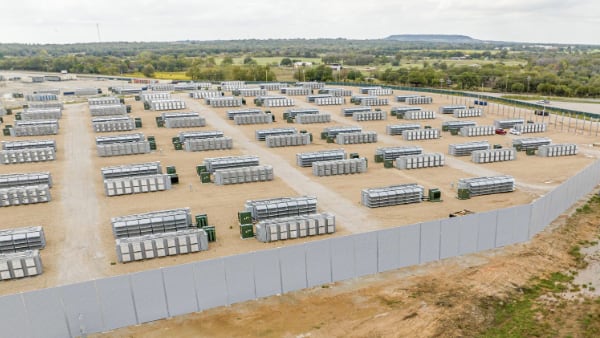- IMF proposes taxes to increase electricity costs for miners, data centres.
- Higher energy costs would steer industry towards increased efficiency.
- Cross-border coordination for energy taxes would be important, IMF says.
Higher energy taxes to increase the cost of electricity used by crypto miners and artificial intelligence data centres would help curb future carbon emissions, according to a paper written by two IMF economists.
For crypto mining alone, a tax increasing the price of electricity by 85% would raise annual government revenue of $5.2 billion globally and reduce annual carbon emissions by about 100 million tons, which is the current level of Belgium, the paper said.
According to IMF economists Shafik Hebous and Nate Vernon-Lin, one Bitcoin mining transaction requires about the same amount of electricity the average person in Ghana or Pakistan consumes in three years, and a ChatGPT query requires 10 times more power than a Google search because of the electricity consumed by AI data centres.
Electricity consumption calculations based on Bitcoin transactions are controversial due to questionable methodology. According to another much-cited study last year, the Bitcoin network uses a lot of water: roughly one swimming pool worth per transaction. But the critics say the study’s per-transaction methodology is flawed, and headlines that relied on it, misleading.
The IMF economists also claim that crypto mining and data centres together accounted for 2 percent of world electricity demand in 2022, and is likely to climb to 3.5 percent in three years, equivalent to the current consumption of Japan, the world’s fifth-largest electricity user. This means by 2027 their carbon emissions could reach 450 million tons, or 1.2 percent of the world total.
To address this, the IMF recommends increasing energy taxes to steer companies toward curbing emissions.
For data centres, a targeted tax on their electricity use would be slightly lower than for crypto miners because data centres tend to be in locations with greener electricity. Still, it could raise as much as $18 billion annually.
Such targeted measures could encourage crypto miners and data centres to use more energy-efficient equipment and potentially motivate the adoption of less energy-intensive crypto mining. Credits for zero-emission and renewable energy certificates would also help, the IMF noted.
The actual situation today is very different.
Many data centres and crypto miners enjoy generous tax exemptions and incentives on income, consumption, and property. Considering the environmental damage, the lack of significant employment, and pressures on the electrical grid, the net benefits of these special tax regimes are unclear at best, the paper noted.
Still, it added that cross-border coordination for energy taxes would be important, as stricter measures in one location can simply encourage relocation to jurisdictions with lower standards.
Crypto market movers
- Bitcoin is up 0.62% today at $59,559.20.
- Ethereum is up 0.24% today at $2,606.96.
What we are reading
- Bitcoin Mining Profitability Fell to All Time Lows in August, JPMorgan Analyst Says — CoinDesk
- How US Treasury $1tn liquidity injection will send Bitcoin price to $100,000 — DL News
- Every Norwegian now indirectly owns $27 worth of Bitcoin as sovereign wealth fund ups crypto stake — Fortune
Update, Aug 19: A new paragraph was added to clarify that electricity consumption calculations based on Bitcoin transactions are highly contested.









